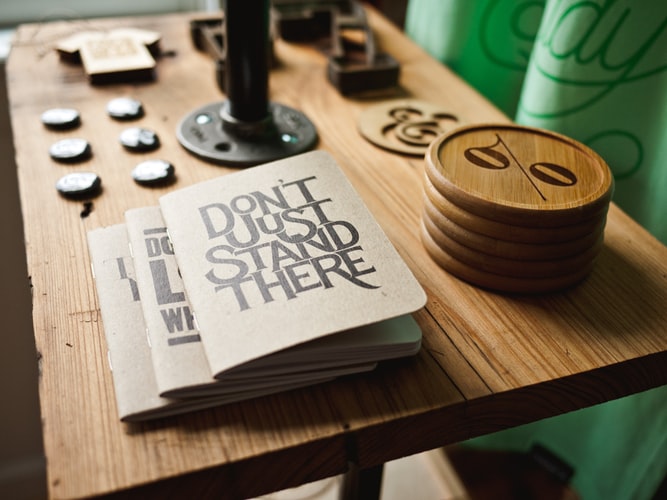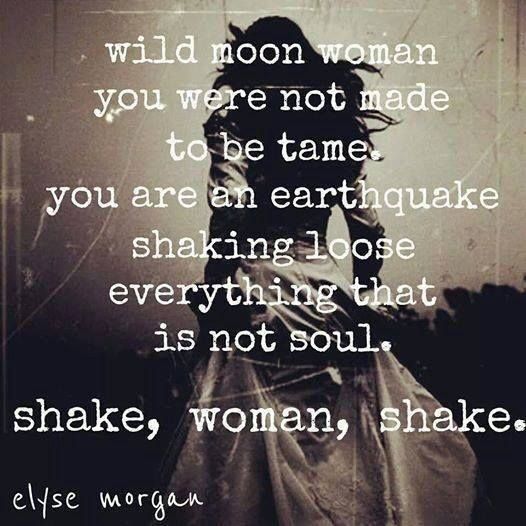You know that thing we do when we compare ourselves to others until it hurts? It’s totally normal. In fact, one of the most common causes of suffering in us humans is the desire to see ourselves as “above average” (a different way of saying we want to see ourselves as better than others) – and the vast majority of us suffer from this…which is why we compare so much. To see where we stand. When I first read that factoid as I was researching info for my next course (one on self-compassion!), I really really really wanted to feel that I was not victim to this desire (because that would be kind of average, right?).
But I so. totally. am. I have an overwhelming fear of being…average. I don’t want an average income. Or an average marriage. Or an average car, travel schedule, house, wardrobe, or stack of graduate degrees. I don’t want average grades, careers, weekend trips, or stories to tell by the so-not-average campfire.
I want a fucking extraordinary life. Waaaaay above average.
I have had a fear of being average since I learned what was possible if you proved you were above average in this world (aka school). Being above average got me out of the ghetto and into my Freedom Junkie way of living. It got me amazing opportunities: scholarships, grants, adventures, jobs…lots of good things. I was terrified of what would happen if I ever lost my ability to rank as above average. Indeed, the idea of losing my mind like my father did (he had schizoaffective disorder) was the scariest thing I could imagine. It was my above-average mind that…kept me safe. The fear of being average was such a big part of my life that it even drove me to hound my urooncologist when I was first diagnosed with kidney cancer to find an alternative to removing my kidney and chucking it.
I was sitting in a meeting with him at the uro-oncology unit of UC San Francisco (he happened to look like the Dalai Lama in a lab coat, which helped with our negotiations;). He told me that my tumor was in a part of the kidney where all the blood vessels come together, and that to remove the tumor while my kidney was still attached to me – and have a good chance of complete tumor removal without causing other severe complications – was very, very small. So they would have to just remove my kidney altogether.
Then he said the thing that got me researching my ass off: “Don’t worry. You’ll be fine with having one kidney. In fact, studies have shown that people who donate a kidney have the same level of happiness as the average American.”
Oh heeeelllllz no, Dr. Man.
“Ummm. No offense…but I am way happier than the average American – and I plan to keep it that way,” I replied. What I I didn’t say out loud was that the idea of being an average American was freaking me out. I just saw myself watching TV on a couch and having the big adventures of my life be camping out for Black Friday sales. I got on the internet that night, and while I was watching multiple YouTube videos of the surgery I was about to undergo, I saw an interesting blip on my Google search page: “UCSF: #2 renal transplant facility in the country”
Hmmm. So if the issue is they can’t cut the tumor out safely while it is attached to me, why not remove my kidney, cut the tumor out, confirm the margins are clear, then put it back in me?”
Shazaam!
I called my surgeon the next morning. “Interesting. I’ll see what the tumor board has to say,” he said in response to my suggestion. (Since this was such an involved surgery, you have to get the OK from everyone on the team – in this case, uro-oncology, the transplant team, and other hospital folk.)
The next day he called: “OK. We decided that we can try the autotransplant – but one of the main reasons is because you are a rock climber and have a higher risk for trauma than the average person, and thus may have a higher need for 2 kidneys.” Woohoo! Being above average saves my scared ass again! (But that is soooo not the point I am trying to make here;)
What’s poignant here isn’t the fact that I got the team to try a new surgery. What alarmed me was that the fear I felt when thinking I might end up average was all-consuming. Yes, the outcome was great for me in this scenario – but it always haunted me that it was my fear of being average that was the driving force. That it had been the driving force behind so many of my actions in the past.
So what’s wrong with striving to be above average when so many cool things can come of it? Like awesome adventure travel, getting to keep your organs, and free tuition, to name a few? When you have a “fear of being average” as your main motivation, you are also susceptible to a deep, wounding type of suffering, because your happiness is based on something outside of you: how you compare to others.
And as long as your happiness depends on where you stand in relation to others on the scale – even for something as noble as adventure or compassion or generosity – you will never have the kind of deep, radiant confidence (aka ziji!) that comes from knowing your own inherent self worth. So you know those days when you internet troll or just perseverate endlessly while comparing your life to others on Facebook or in “real life” – someone in a similar field as you or in your social circle or tribe – and you wonder why they seem happier or more loved or more famous or more exciting or more wealthy or more adventurous or more kind and compassionate or more relaxed … or more anything than you?
Yeah that. That’s from our fear of being average. The Comparison Carousel. Round and round. “Where do I stand now?” we wonder. All. freakin’. day. It’s exhausting.
I used to think only my friends and others with FOMO (fear of missing out) had this type of fear, and that it was this fear that helped them have such amazing lives of adventure. But then I started to realize that we all have the fear of being average. It’s why scapegoating is so common when times get tough – when there is an economic depression or scarcity of jobs, racism and discrimination increase as people strive to prove in a scarcity environment that they still have the one-up on others.
Don’t take this lightly, folks. This tendency to want to be above average creates more suffering in us as individuals, as well as worldwide in small communities, large countries, and in international relations. You may not realize the degree of suffering this causes if you manage to stay “above average” in the categories important to you or your culture for a long time…until you start to get exhausted running the race; start to fall behind; or finally find that person who is smarter than you, prettier than you, sexier than you, more adventurous than you…just better than you all around (all else created equal). And you will find that person. There is always – always – going to be someone “better” than you are at something (except, of course, at your own unique purpose;).
When that happens, you feel crushed. Or suddenly depressed, even though you have achieved some amazing shizzle in your life. Or you feel devastatingly not enough. I know some of you may be wondering if this means we should all strive to be “average.”
Absolutely not.
This life is precious, a gift like no other; to be born in your body on this planet with the ability to create life experiences and a mind to dream…its all a miracle and you would be a fool to not take full advantage of it and make the most of this life. I want you to live an extraordinary life.
Because of that, what I do want to encourage is this:
Do not let your motivation be to feel like you are better than others, or “above average.” Let your motivation in life be to live your best life. To live your gifts into this world. Screw what anyone else is doing. Only you know if you are living life full-on. And that is all that matters.
After all, in reality, we are all average. As Dr. Kristin Neff, a Developmental Psychologist from the University of Texas at Austin (and self-compassion geek!), points out, “To be human is to be average.” It’s true. We all have our strengths (the things we do really really well), and the things we do just so-so (sort of average)… and we also have our weaknesses – those things that we just suck at, or have a lot of room for improvement.
The key to sustainable happiness – and indeed the true inner confidence that follows – is to accept that we are all beautifully average. The world needs us all to be average at most things! Then, we can focus on our gifts – those things we do really really well – and leave the rest to the other average humans that rock the things we suck at. We don’t have to do it all or know it all (ahhhh…isn’t that relaxing!?). While the reality is that we may need to stand out from the crowd to get certain jobs or attain certain accomplishments, we don’t have to be better than someone else to be happy.
Indeed, the opposite is true. Embrace your averageness;) Live an extraordinary life on your terms. When you release the desire to be above average and embrace your true gifts and the preciousness of this life…ahhhhh – that is when the fun begins. The freedom. The adventure. That no one can take away from you.
Since this tendency to have a fear of being average exists in almost all of us, don’t beat yourself up about it when it arises. Just notice it. Notice it as part of the average human experience. Then do things differently. Choose to be motivated from your own heart’s desires…what makes you happy, no matter what else others are doing.
Stop comparing.
When you see yourself comparing, ask yourself what you really want in this life, and what is one action you can take right now to move you closer to it. Embrace your “average,” and focus on extraordinary living from your heart Recognize the common humanity in all of this – that you are not alone in your fear of being average.
That we all fear it. And that is it precisely our averageness that beings us closer as humans….And it is precisely the unique gifts that every single one of us has that, when expressed fully, make this life extraordinary. It is savoring each moment, staying present, being kind to ourselves and each other, manifesting your gifts and living this life as the greatest adventure of all time that will give you the radiant inner confidence to know you are crushing this whole carpe-the-dang-diem thing.
Only you know when that happens. And that’s all that matters.
Try this:
(adapted from Kristin Neff’s book, “Self Compassion”)
1. make a list of 5 culturally-valued qualities you have
2. make a list of 5 culturally valued qualities you have in which you are average
3. make a list of 5 culturally valued qualities you have in which you are below average
Now, can you look at this list and embrace it fully? Can you accept the fact that we ALL have traits in which we kick ass, fall within the bell curve, or need to leave to someone else – which ultimately makes us all…average? And can you feel in your bones that just because you – and everyone else – is actually quite average does NOT mean you cannot live an extraordinary life?
It just means you are finally…free.
***
Ready to dive deeper into this? Check out Freedom School and see what everyone’s obsessed about. It’s not just group coaching. It’s a mindset revolution that you won’t want to miss.






